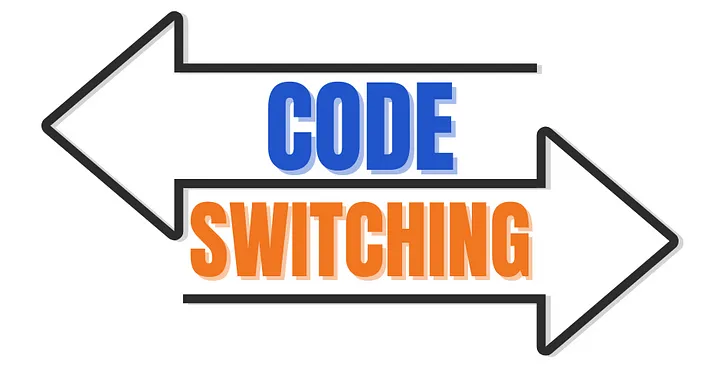As MBA students from diverse backgrounds prepare to enter or advance in the corporate world, they often find themselves grappling with an unspoken prerequisite: code-switching. This term describes the adjustment of one’s behavior, appearance, or language to align with dominant cultural norms. While some view this as a necessary survival tactic, it carries significant hidden costs. It’s time to shed light on this issue and consider how it can serve as a catalyst for creating more inclusive corporate cultures.
The costs of code switching
1. Unmasking Code-switching
Code-switching is a reality many individuals from diverse backgrounds face, especially as they navigate their MBA journey and anticipate their entry into the corporate environment. Recognizing this phenomenon is crucial, but it’s equally important to question why it occurs.
Pro Tip: Advocate for Your Perspective with Data
During group projects or Case Challenges, don’t shy away from advocating for your perspective. Research relevant data to support your viewpoints and showcase how your unique background can lead to a more comprehensive approach. For example, if discussing a marketing strategy, consider including statistics on the growing purchasing power of minority demographics and how tailoring the campaign to resonate with these audiences can lead to increased market share.
2. The Energy Drain
Code-switching involves more than modifying language or behaviors — it requires significant cognitive effort to constantly monitor & adjust one’s presentation. This mental exhaustion can limit your productivity and creativity.
Pro Tip: Batching and Prioritization
When preparing for presentations or networking events that may require code-switching, schedule dedicated “code-switching” time to strategize beforehand. Identify key talking points and situations where you might need to adapt your communication style. This allows you to approach these situations with a plan, minimizing the need for on-the-spot adjustments and conserving your mental energy for genuine interaction.
Incorporate Mindfulness Practices
Practice mindfulness techniques like meditation or deep breathing exercises to manage the mental strain throughout the day. These techniques can help you stay centered and grounded in your authentic self, even when navigating environments that require code-switching.
3. Authenticity in action
Constant code-switching can lead to a sense of lost authenticity. When juggling between your true self and the ‘adapted’ persona, unique perspectives and ideas can be muffled.
Pro Tip: Leverage Your Background for Richer Discussions
Actively participate in class discussions. Don’t be afraid to frame your contributions by connecting course concepts to your background and experiences. For example, if discussing leadership styles in a management course, share anecdotes from your own cultural background that highlight different leadership approaches and their effectiveness. This not only enriches the discussion for your classmates but also allows you to express your unique voice and contribute valuable insights.
4. Prioritize Mental Health
The continual pressure to code-switching can amplify stress, potentially leading to anxiety and feelings of isolation. Acknowledging these effects is the first step to mitigating them, ensuring your mental health doesn’t become a casualty of this practice.
Pro Tip: Utilize Resources and Build a Diverse Network
Don’t hesitate to utilize your MBA program’s resources, such as counseling services or student support groups specifically dedicated to diversity and inclusion. These resources can provide a safe space to discuss the challenges of code-switching and offer strategies for managing them. Building a network of diverse peers and mentors who can empathize with your experiences is crucial. These individuals can offer support, guidance, and act as sounding boards as you navigate the complexities of the corporate world.
5. A Catalyst for Change
Code-switching isn’t a practice to master; it’s a status quo to challenge. By fostering dialogues around diversity and the toll of code-switching, you can help reshape the corporate culture you’re about to enter. Progressive organizations are already recognizing the need to build inclusive environments where everyone can be their authentic selves.
Pro Tip: Lead by Example and Start Conversations
If you witness situations where classmates are potentially code-switching, don’t be afraid to start conversations about the importance of diverse perspectives. You can initiate discussions by sharing your own experiences with code-switching and its impact. Encourage open dialogue about creating a more inclusive learning environment where everyone feels comfortable expressing their authentic selves.
The Power of Authenticity
Increasingly, innovative companies are recognizing the value of diversity and authenticity. They understand that an environment that encourages everyone to bring their authentic selves to work leads to more innovative solutions and better business outcomes. Understanding the cost of code-switching empowers us to challenge the status quo and foster a culture of acceptance and authenticity. Our unique perspectives, experiences, and identities can drive forward-thinking corporations toward a more inclusive & innovative future.
Embrace your authenticity; it’s an asset, not a liability.

